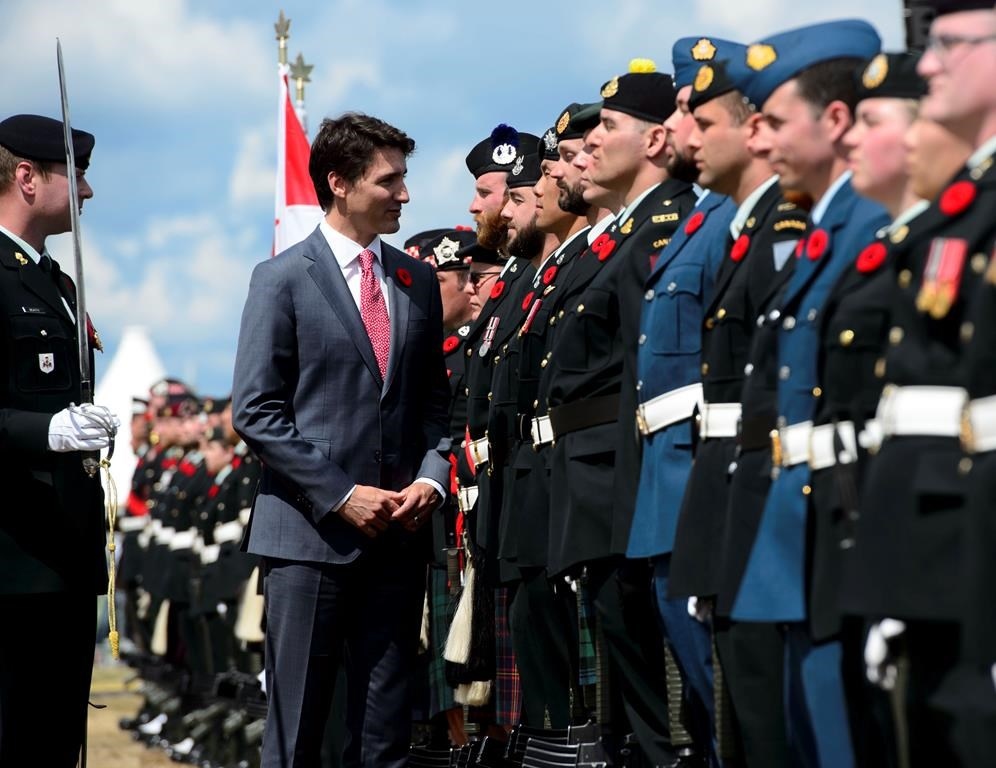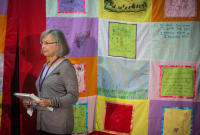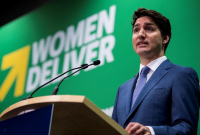Support strong Canadian climate journalism for 2025
The world has a lesson to learn from Canada in the release of findings from a federally funded commission on missing and murdered Indigenous women and girls, Prime Minister Justin Trudeau said Thursday.
Speaking in France following a D-Day anniversary ceremony at Juno Beach, Trudeau said the work of the commission was important to establish what has happened, adding the focus now needs to be on respect for Indigenous Peoples and putting an end to terrible violence in Canada and elsewhere in the world.
The goal of calling the inquiry into missing and murdered Indigenous women and girls was to end the ongoing national tragedy, Trudeau said Thursday.
"I think that if the work that Canada has done to highlight the challenges that we have faced and that in some ways are ongoing, then I think the world has a positive lesson to learn," he said.
The Liberal government established the inquiry in 2016 and its four commissioners presented their final report on Monday at a ceremony in Gatineau, Que., along with 231 recommendations they framed as "calls for justice."
The report concluded that colonial violence, racism, sexism, homophobia and transphobia against Indigenous women, girls, LGBTQ and two-spirit people has become embedded in everyday life, resulting in many Indigenous people becoming accustomed to violence.
It also says Canadian society shows an "appalling apathy" in addressing the issue, adding that the inquiry "finds that this amounts to genocide."
Following Monday's formal presentation of the report, Trudeau has faced questions about the inquiry's use of the term "genocide" and whether his government agrees with it, to which he replied that he accepts the findings of the commission.
The commission called Trudeau's acceptance of its findings "an important moment" in the journey of truth and reconciliation in Canada and an "acceptance of the truths shared by families and survivors."
"They no longer need to convince others that genocide is a part of Canadian history," it said in a statement.
Following the release of the report, the secretary-general of the Organization of American States wrote to Foreign Affairs Minister Chrystia Freeland and said he would like to create a panel of experts to investigate the disappearances and deaths of Indigenous women in Canada.
"Given that your country has always sided with scrutiny and international investigation in situations where human rights are violated in different countries, I am expecting to receive a favourable response to this request," Luis Almagro wrote.
"If you accept our proposal, I will be working jointly with the Inter American Human Rights Commission to designate renowned independent experts that can initiate their work as soon as possible."
In response, a spokesperson for Freeland said Canada is a strong supporter of the rules-based international order and the multilateral institutions that underpin it, including the OAS.
The government is committed to ending the ongoing national tragedy of missing and murdered Indigenous women, girls and LGBTQ and two-spirit people, said press secretary Adam Austen. He said the government has received Almagro's letter and will reply in "due course."





Comments